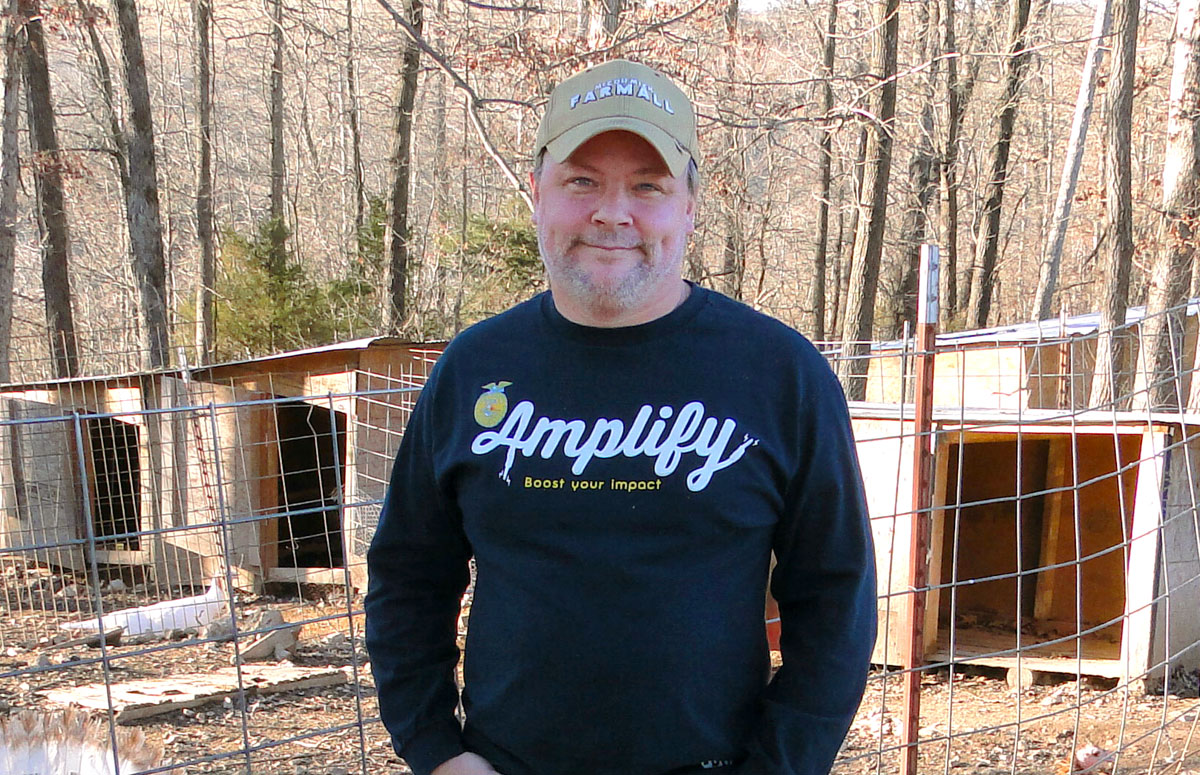 On any given summer day, 5-year-old Aubrey Stanley can be found in a pen playing with her family’s Nigerian Dwarf dairy goats. Located in the Ozarks between Mulberry and Mountainberg, Ark., Mountain-Berry Farm is owned and operated by Bill and Samantha Stanley.
On any given summer day, 5-year-old Aubrey Stanley can be found in a pen playing with her family’s Nigerian Dwarf dairy goats. Located in the Ozarks between Mulberry and Mountainberg, Ark., Mountain-Berry Farm is owned and operated by Bill and Samantha Stanley.
Samantha’s parents, Jackie and Deborah Hopkins, moved north of Mulberry about nine years ago. Jackie appropriately named the farm Mountain-Berry Farm before his death in 2012.
“My dad started calling it Mountain-Berry Farm and it kind of stuck,” said Samantha.
Bill, Samantha and Aubrey moved to a house neighboring her mother’s farm about two years ago.
“It’s nice living this close to my mother. We have twice as much acreage to run the animals on and Aubrey is able to play and explore,” said Samantha.
Samantha started in the Nigerian Dwarf dairy goat business when she bought a few wethers and does shortly after moving to Mountain-Berry Farm.
Today, Samantha has 20 Nigerian dairy goats, including two breeding bucks, 12 breeding does, a few yearlings and one pet Pigmy wether.
Nigerian Dwarf dairy goats, with their North African ancestry, are known for bold body markings and slender build. All Mountain-Berry Farm goats are registered in the American Goat Society and the American Dairy Goat Association.
Another distinctive characteristic of the Nigerian Dwarf dairy goats is their ability to produce a large amount of milk with a high butterfat.
According to Samantha, each Mountain-Berry Farm doe produces almost two quarts a day during peak milking.
“Since goat’s milk possesses less lactose than cow’s milk, it was a good choice for us,” said Samantha. “My brother is lactose intolerant and can drink our goat’s milk. We drink it too. Aubrey loves it, even more than store-bought milk.”
Mountain-Berry Farm also offers farm-fresh products for sale.
“We sell milk locally for $7 a gallon. We also sell homemade goat’s milk soap for $4 a bar,” said Samantha.
Nigerian Dwarf diary goats are not the only animals on Mountain-Berry Farm. A llama named Dolly helps protect the goats from predators like coyotes, bobcats and mountain lions.
They also have a pot-bellied pig.
Mountain-Berry Farm is also home to Silkie and Cochin bantams, Ancona ducks and registered American Quarter Horse Association show horses.
“My mom has the chickens and turkey, and we have the goats and horses,” explained Samantha of their farm setting.
Mountain-Berry Farm does not use traditional advertising methods to sell goats or any of their other animals or goods offered for sale. The power of social media is what drives the farm forward.
“All I do is put posts and pictures up on our Facebook page. People usually want the goats for pets and sometimes for breeding or milking. I’ve even sold them to people in Tennessee and Texas.”
This year alone, 15 kids were born. As of June, all kids offered for sale have been sold.
Samantha hopes to raise Aubrey on Mountain-Berry Farm where she is able to participate in 4-H showing goats, chickens and horses.
“Aubrey loves to play with the animals. She has a love for them and ultimately that’s why we do it.”







